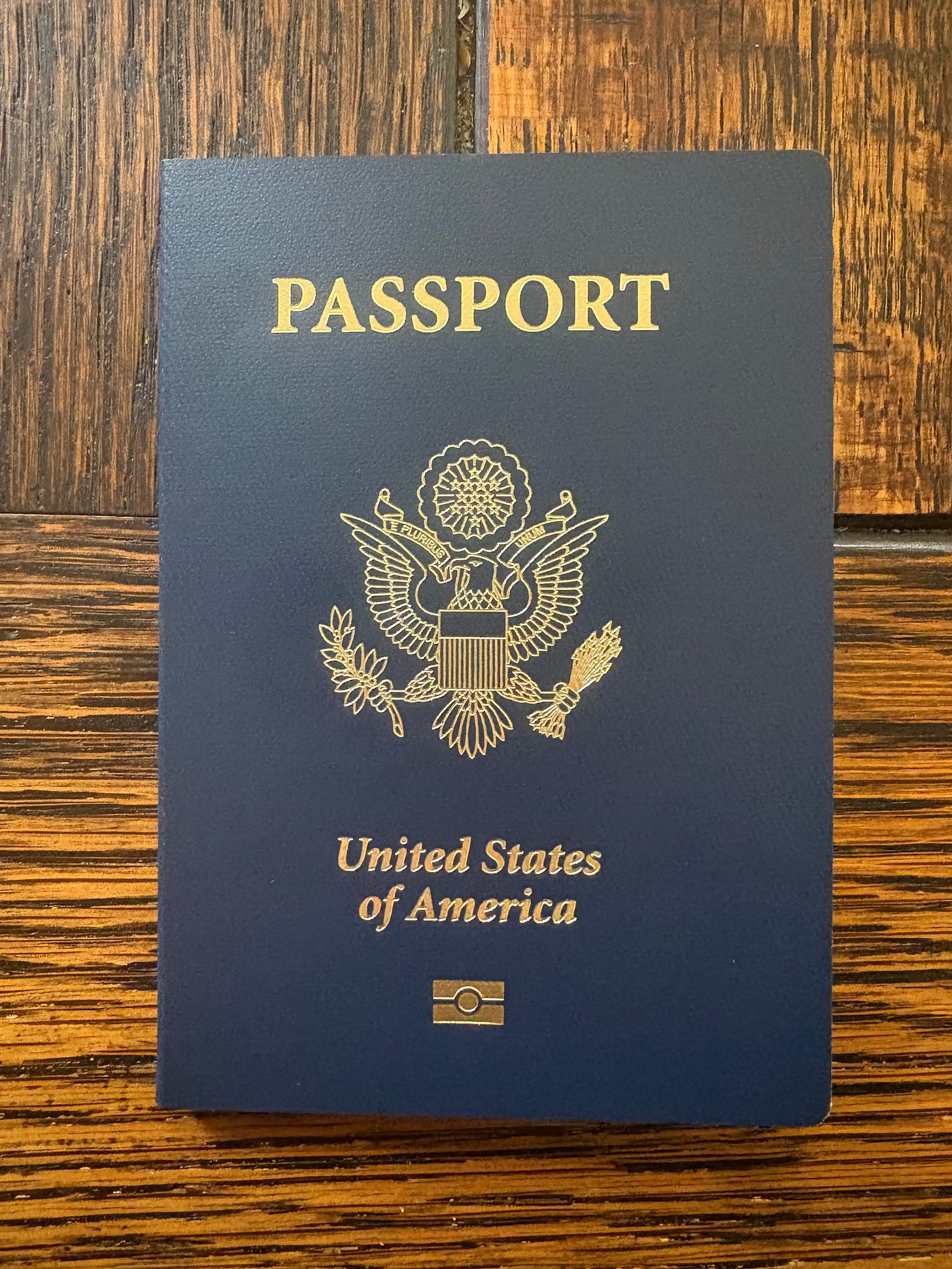For the trans community, the last few months have been a mad scramble to get our shit in order. Trans-feminine friends booked the facial surgeries they’d been sidelining for work-related reasons, nonbinary friends decided to have top surgery or go on T, trans-masc friends finally made the dreaded trip to the SS office or the DMV to get their social security numbers and driving licenses updated. I was relatively lucky; seven years into my transition I’d pretty much got all my papers in order, with the exception of my American passport, which at the time of the election still showed F for female.
I knew continued procrastination wasn’t a risk worth taking, since changing gender-markers on official documents might become illegal under a Trump administration, and I didn’t want to out myself every time I went through airport security. Aware of how long it can take to update a passport, I filled in the paperwork and sent it off in early December.
A week later, when I saw the envelope from the passport office in my mailbox, I assumed I’d filled out the paperwork wrong and they’d sent my old passport back. New passports just don’t get turned around that fast. Opening the envelope, I imagined a bored, disgruntled employee at the passport office printing out yet another letter explaining that the wrong form had been filled out, but when I pulled out my brand new passport—complete with updated gender-marker—I was forced to rewrite this narrative entirely. Now I envisioned a passport office employee opening my application, yelling “Another trans one!” and throwing it across the room to a colleague. A team of angels somewhere in the dark halls of the Department of State, collaborating together to push all the gender-marker applications to the front of the line, conspiring to get as many trans people authenticated as possible before Trump came into office.
George Saunders, writing about Gogol, mentions Deborah Eisenberg writing about Gregor von Rezzori (bear with me here) and the great harm that can be done by a handful of evil people as long as they have the “passive assistance of many, many other people who glance out of the windows of their secure homes at a cloudless sky.”
As soon as I had my updated passport back in my hands, I felt guilty as charged. My citizenship was safe, even though I was perfectly aware there were millions of people across the country who, for the foreseeable future, would be living in fear of the hand of ICE knocking on their door. It was too easy to breathe a sigh of relief and relax into the (still possibly premature) belief that I was going to be okay, while telling myself that while I was obviously sympathetic to the plight of undocumented immigrants, there was nothing I could do to help. Voting, protesting, signing petitions - where had all this got us? Precisely nowhere.
The problem is that overwhelm can so easily lead to inaction. I don’t want to stand by and let atrocities happen simply because I have no idea what I can do to prevent them—I don’t want to commit the sin of the passive enabler—but what can I do? The anonymous saints at the passport office gave me an answer. In all probability none of those passport employees were trans, none of them had any particular investment in trans issues or felt any real solidarity with the trans community, but when they were offered an opportunity to resist the incoming administration, they took it. They did what they could.
I’m beginning to notice these small acts of resistance—and solidarity—happening all around me: my local Pride group gathering together to attend the ACLU meeting at the local town hall, trans friends stockpiling hormones to share with each other in case gender-affirming care gets banned, trans influencers offering online access to useful legal advice for anyone at risk, trans journalists continuing to share their resources for free. This is what I remind myself when I feel powerless and impotent: that every action counts, no matter how insignificant it may seem. Resistance movements are maintained by the commitment of ordinary people, utilizing whatever tools they have available, showing up for the vulnerable and reassuring each other day after day that they’ve got each other’s backs. That small army of passport administrators, quietly protesting the incoming government, are my new role models. They did what was in their power. I hope I’ll do whatever is in mine.
FRIGHTEN THE HORSES—an Oprah Daily Best Book of Fall—is out now with Roxane Gay Books. A valuable alternative narrative to the loss and pain that queer history has too often insisted on — New York Times; Humorous and heartwarming — LA Review of Books; It’s the voice that makes this memoir stand out. This is a writer who can capture any moment with a dazzling, insightful, at times musical phrase — Oprah Daily; This book is sharp as razors, but it also pulses with a passionate, desperate, human urgency for truth and liberation — Elizabeth Gilbert; The finest literary telling of the experience of gender transition that I’ve ever read — Kate Bornstein.
You can order the book here:






I had this exact experience with my birth certificate. I did have to redo my application three times, but each time Minnesota was very kind and thorough in explaining what I was missing. And they turned it around fast each time, less than a week in one case. I expected it to take months, but was about 6 weeks from the date of the first of three applications to when I had my revised bc in hand. They obviously knew what was at stake, since the election had already occurred by then.
Hooray for the passport office people!
This is a really lovely story.